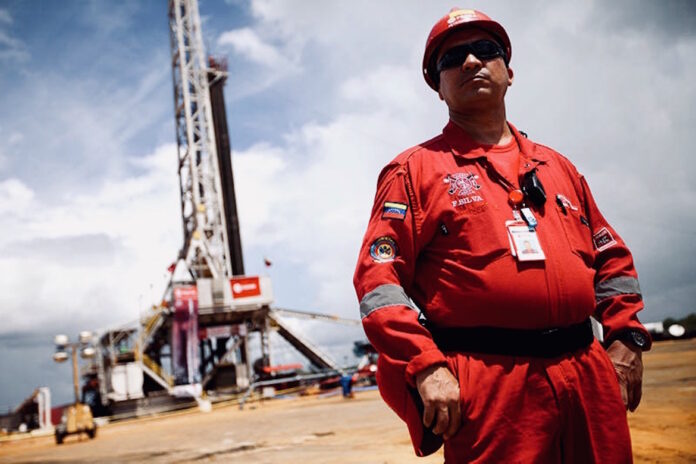Ivan Freites, a trade union leader with years of experience in the industry, has issued a manifesto stating that “PDVSA is not closing; it will recover with its workers.” His declaration calls for a clear response, not to create a dispute, but to frame the debate correctly: how can oil workers be saved from the historical wreck of a company that is bankrupt, in debt, politicized, and captured by mafias?
The real question isn’t whether PDVSA should be closed or sustained:
the question is whether Venezuela can rebuild while carrying the legal, financial, and operational corpse of a company that has been destroyed from within.
The workers aren’t the problem: they are the victims
Freites is right on one essential point: without the workers, there wouldn’t be a single drop of fuel today. They have operated under persecution, imprisonment, starvation wages, and without collective agreements.
But this demonstrates that PDVSA has ceased to exist as a functional company. What remains is an empty shell where impoverished workers, exiled technicians, and politically loyal payrolls struggle to survive.
Closing PDVSA doesn’t mean shutting down wells and refineries:
it’s about dismantling the structure that destroyed wages, eliminated rights, and broke industrial ethics.
Recover what? The debt, corruption, or international lawsuits?
Talking about “recovering PDVSA” raises an uncomfortable question:
how can a company with more than $70 billion in debts, sanctions, litigation, loss of strategic assets, and absolute political control by the regime be salvaged?
The contracts Freites denounces —with Chinese, Russian, and other companies that pay $20 for 16-hour shifts— were signed by a hijacked PDVSA. Trying to maintain its legal facade means preserving that toxic legacy.
Closing PDVSA doesn’t mean giving up its assets:
it’s the only way to recover them, clean them up, and establish a new legal and productive framework.
Workers have a future in a new institutional framework, not in a corporate fossil
The 21st-century energy and oil transition can’t be built on an insolvent, discredited, and legally compromised company. Closing PDVSA is about replacing it with a new structure based on three pillars:
An independent and technical Venezuelan Hydrocarbons Agency.
A regulatory Ministry that separates politics from operations.
New mixed operating companies, with regulated private participation and guaranteed decent employment.
This involves transferring payroll, assets, and technical expertise to a clean model where workers regain their rights and are not continuously subcontracted by foreign operators under opaque contracts.
There’s no threat to jobs: there’s an opportunity for rescue
The closure of PDVSA —when correctly articulated— won’t leave any worker on the street. On the contrary:
It reincorporates qualified personnel under new entities.
It reinstates collective bargaining instead of burying it.
It creates a transition fund for salaries, benefits, and retirement.
It allows audits of savings fund thefts, trusts, and benefits.
It eliminates the parallel payroll of the party and labor persecution.
The real threat is keeping workers within a bankrupt structure that only serves to finance the elite of the regime and their foreign partners.
PDVSA is not the homeland — and Freites knows it
The oil labor movement has a historic opportunity: to lead the transition, not to cling to the remnants of a company that no longer exists except in its logo.
Closing PDVSA isn’t a technocratic whim or a paper recipe: it’s a major surgical act to save the patient. And the patient isn’t the brand: it’s the workers, the strategic assets, and the country’s energy future.
Those who struggled within PDVSA deserve more than continuing to patch up an institutional corpse. They deserve to be the protagonists of a new industry that restores dignity, legal security, and real labor freedom.
It’s truly irresponsible not to close PDVSA, but rather to pretend that it can be revived without dismantling it. And that’s not an ideological debate, it’s an economic, legal, and moral fact.
@antdelacruz_ / Executive Director of Inter America Trends
